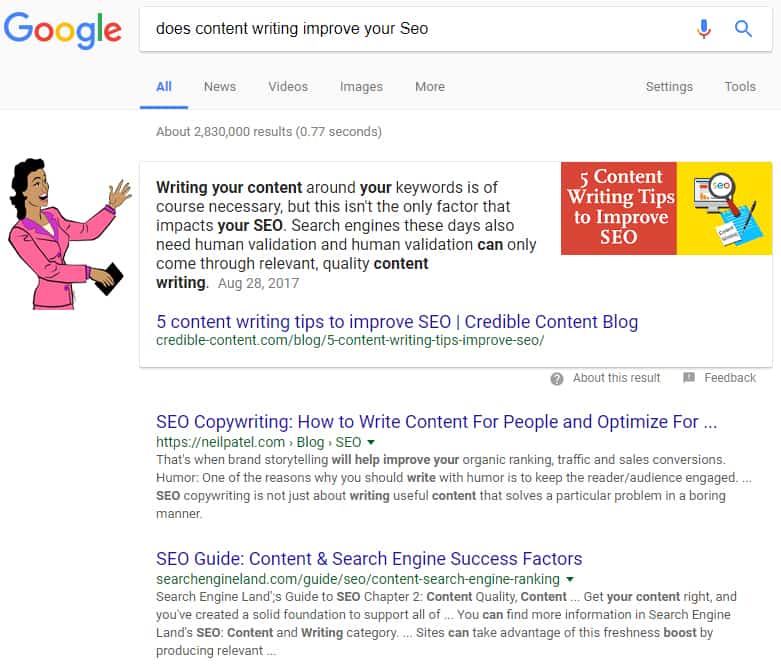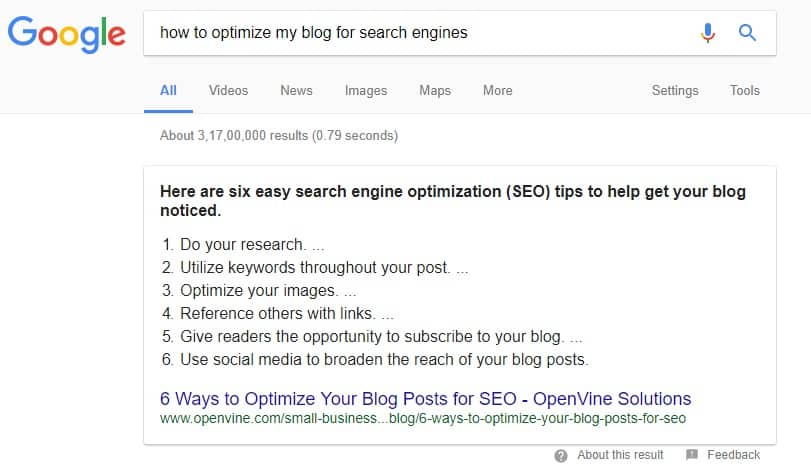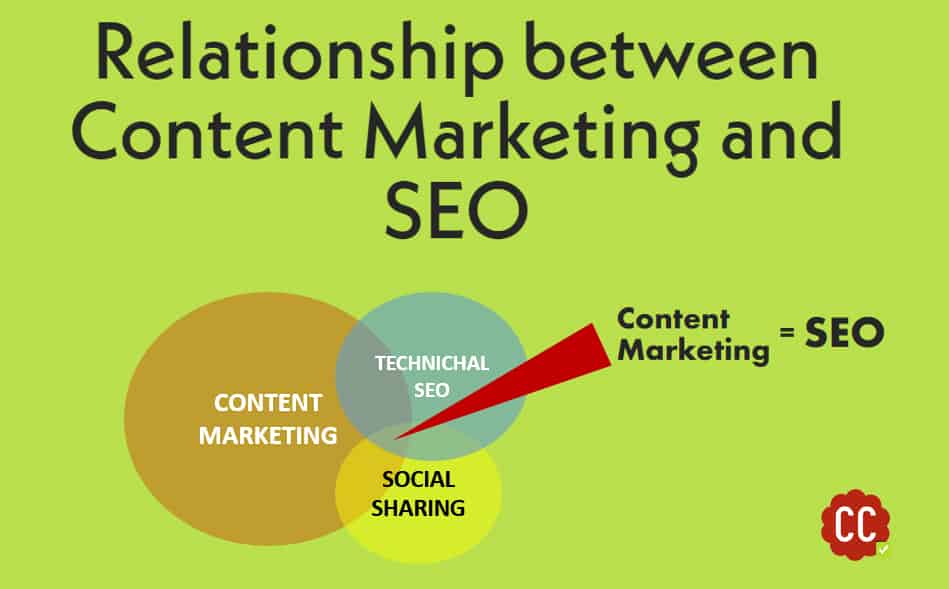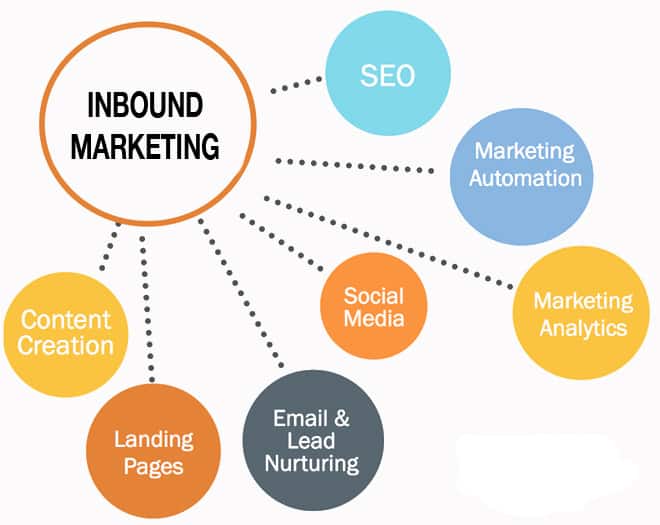I was checking the rankings of my blog posts that I have recently published and I suddenly found one of my links in Google’s Featured Snippets box. Here is the screenshot
What Are Google’s Featured Snippets?
Nobody knows exactly how Google decides to feature a particular piece of content in its “featured snippets” box, but you must have noticed that sometimes when you do a search on Google, one of the links appears at the top with highlighted paragraph, or some portion of the web page or blog post, along with the link.
Some call it ranking #0 because the link that is featured in Google’s Featured Snippets box appears even before the first link on the search results page. But many would be scared with #0 so, in my title I have used #1.
As you can see in the image above, the Google’s Featured Snippets box appears at the top, within the highlighted box, and a description almost as long as a paragraph.
It isn’t always a paragraph that is featured in the snippets area. Even if you represent the information in bullet points, it can appear over there. See for example, this one…
How does Google pick a particular link for the Featured Snippets box?
As I have written above, it is unclear how Google decides which link to feature in the snippets area. Many SEO experts and content marketers have tried to figure out but there is no algorithmic logic to it. Google seems to be picking the information randomly.
Here is a very extensive blog post on how to optimize your content so that it can feature in Google’s Featured Snippets box [HubSpot link].
The author says that whether you get featured in the snippets box or not doesn’t depend on the SEO quality of your link. Your link may not even appear on the first page of search results and still appear in the snippets box.
Of course, it doesn’t mean that even if you throw all SEO benchmarks out the window you are still going to feature in the snippets box. No, that won’t happen. Your content must be of good quality and it must give some indication to Google that it deserves to be featured in the snippets box. Read What is quality content and how does Google recognize it?
Is focusing on the Google Featured Snippets box good for your SEO?
People are sometimes worried that featuring in the Google Featured Snippets box deters people from clicking the link because what they are looking for is given in the box itself. Since they have found a solution to their problem, there is no reason for them to click the link.
The author of the above HubSpot link says:
From a sample of just under 5,000 queries, I found that the CTR to the HubSpot website for high volume keywords increased by over 114%, even when we ranked #1
What he means to say is that even when their link was already appearing at #1 there CTR increased by over 114% once the link started appearing in the Featured Snippets box.
Even I feel that this should actually increase traffic to your website because one, people who know how important search engine rankings are, are quite impressed that you are bang there in front of them, at the top, even above the link at #1, and two, they want more information. A single paragraph may provide a concise view of the solution they are looking for. They can only find a detailed description when they visit the link. Most do.
Here is a Moz link that demonstrates that traffic to your website actually increases if your link features in that box.
How to write content for #1 ranking by Google’s Featured Snippets?
As I have mentioned in this blog post titled 20 Evergreen Characteristics of Quality Content, focus on quality.
Provide to people what they are looking for. Don’t mislead them. Don’t create titles and headlines in such a manner that people are tricked into visiting your website and then when they come there, they are disappointed.
In fact, due to the “Search Task Accomplishment” factor, web pages and blog posts that don’t provide straightforward answers to people’s questions will start ranking lower even when they are decently optimized and even when they have quality back links. It matters what you are providing.
In order to be able to feature in Google’s Featured Snippets box, it has been observed that
- Try to create a question out of the main expression and put that question within the <h1> or <h2> tags.
- Try to enclose the main quarry by the user in the above tags.
- Just beneath the question, provide an answer. Try to provide the answer within 50-60 words.
- Use the language as if you are providing an answer to a question. Your answer should follow the question naturally.
- For question-oriented keywords, Google prefers bullet points but if you are searching for something like “content writing services”, Google prefers to pick a paragraph.
Focus on answering questions when writing content keeping Featured Snippets in mind. Ask a question, and then immediately provide an answer, preferably in 50-60 words.
Does this guarantee that your link will appear in the Featured Snippets box? No.
It is quite random.
Then how can you get your link featured in this coveted section?
Create lots of content. Create many webpages and blog posts providing high-quality content.
You have to establish your authority. Many of your links should already be ranking well before Google begins to notice useful chunks of information on your web pages and blog posts. You cannot suddenly start publishing blog posts and then expect that your links will be featured in the snippets section.
Follow the pattern. Follow the SEO format that includes
- Use the main search term or the keyword at least once within <h1>, <h2> and <h3> tags.
- Write shorter paragraphs under the headings and try to provide as complete an answer as possible to the main quarry within 40-60 words in a paragraph.
- Use bullet points wherever possible to present stepwise information.
I would like to stress again that there is no set formula for appearing in Google’s Featured Snippet box. All you can do is, keep publishing great content.






